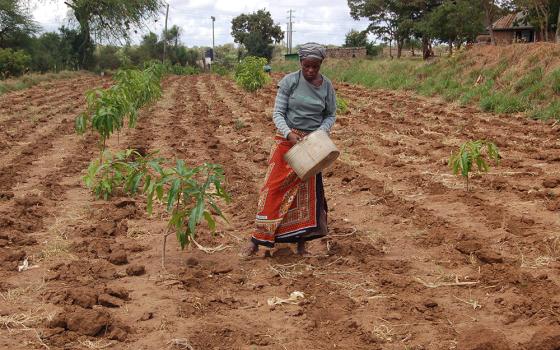At the end of the first week of the Bonn Conference on Climate Change, the first thing which comes to mind is how little coverage this vitally important negotiation session is receiving the world media. A favorable outcome from the Bonn Conference is essential if the UN Framework Conference on Climate Change (UNFCCC) which is to meet later in the year in Durban, South Africa, is to succeed.
As the Kyoto Protocol runs out in 2012, Durban must deliver a fair, ambitious and binding climate change treaty. The top priority in that treaty must be the ambition to close the gigaton gap which the United Nation Environment Programme (UNEP) estimates at between 5-9 gigatons. 1 gigaton = 1,000,000,000 tons. This is why the world needs ambitious cuts in greenhouse gas emissions (GHGs) if we are going to keep average rise in temperature below 2 degrees Celsius.
ich countries must move to the top end of the cuts in GHBs which they have promised. The reduction target now must be a 40 percent cut in emissions by 2020. They must also agree to close loopholes which have been used in the past to avoid taking painful decisions now. Among these has been the dodgy accounting systems often used for LULUCF or Land Use, Land Use Change and Forestry.
There is no doubt about it, that this is going to be difficult to achieve, given the stance which various countries have taken in Bonn, during the first week of the Conference, June 6 to 10, 2011. Japan is a good example of this tendency. June 11th marks the third month after the nuclear accident at Fukushima in the wake of the powerful earth quake and tsunami. Since then the Japanese government has made a decision not to build any more nuclear power plants and pledged to investing heavily in renewable energy.
There is a danger that in the transition period, Japan will increase it dependence on energy from fossil fuel and therefore find it hard to meet its commitment to reduce GHG emissions by 25 percent by 2020 and 80 percent by 2050. The Japanese negotiators at Bonn have also repeated the position that they articulated at Cancun which is that they will not favor a second commitment period for the Kyoto Protocol which runs out in 2012. Their reason, of course, is that other wealthy nations, especially the United States, are not covered by the Kyoto Protocol. Neither are the transition economies of China, India, South Africa and Brazil, which are now major emitters of GHGs. There is also a fear that the climate bill which is about to be discussed in the Japanese Parliament, will lower it commitments to reduce GHG emissions.
Several independent studies show that Japan can achieve its 25 percent target even as the nuclear component of the energy mix is being phased out. Japan needs to follow a twin tack approach which will combine massive energy saving measures with serious investment in various forms of renewable energy. While Japan has not been a leader in this area, this might be about to change. Softbank Corporation which is the third largest mobile phone company in the country has come out in favour of clean and safe energy. It intends to invest hundreds of millions of dollars to build 12 large solar power plants across the country.
Backsliding on commitments is not confined to Japan. Norway, traditionally a leader in remission reductions, pledged to reduce GHGs emission 40 percent. Now it seems that there are powerful commercial and political forces in the country, which are suggesting that Norway abandons its commitment to achieve two-thirds of these cuts through domestic decisions. They are suggesting that Norway might use its investment in funding REDDs (Reducing Emission in Deforestation and Degradation) to achieve its 40 percent cut in GHG by 2020. This would set a very dangerous precedent for other rich countries. It certainly would derail the challenge from the Cancun Climate Change Conference (Mexico December 2010) to wealthy countries that they increase and not decrease their commitments to lower GHG emissions.
Among important issue for Durban is adequate finance. Cancun took positive steps towards setting up an institutional structure for financing various aspects of climate change, especially money to help poor countries to adapt to climate change which is already happening. The Durban Conference must ensure that there is adequate money to address adaptation needs. The Fund must be increased year-on-year so that the $100 billion promised by 2020 is realized. Without adequate finance poor countries which are already feeling the impact of climate change will suffer further disastrous consequences.
Columban Fr. Seán McDonagh is attending the International Conference on Climate Change in Bonn, Germany.




